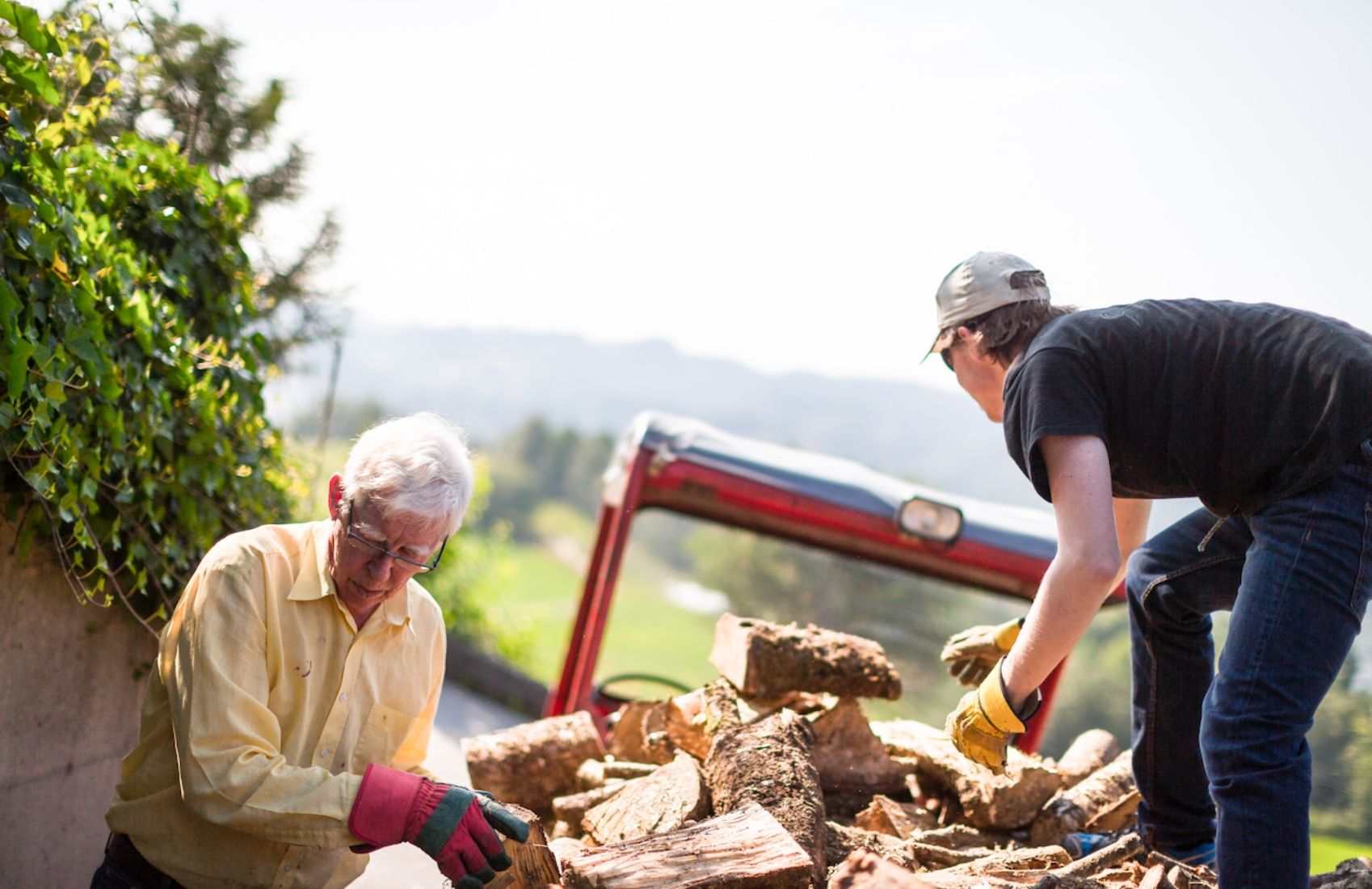Hodgepodge
Dugnad: Norwegian for Pitching In
A volunteer culture. A selfless sort of soulful, yet collective insurance. A way of life that values individual contributions to causes greater than oneself. In one way or another, it has existed in other agrarian societies across the globe, where labor is shared, but in Norway it remains strong.
Rooted in its ancient fishing villages and farming communities, Norwegians’ spirit of neighborly collaboration endures to this day. There’s no precise translation for what Norwegians call “dugnad,” but it incorporates the essence of words like “help” or “support.” Dugnad expresses a cultural tradition centered on the value of a strong work ethic—one directed at the greater good. Historically—whether farming, gardening, housebuilding, barn-raising or haymaking—friends, neighbors, community members and even strangers felt compelled to pitch in. They helped out for the good of the group. Why? Because we all need help. Because dugnad.
A thread of the action-oriented, hands-on, do-it-yourself mentality weaves its way throughout the communal concept of dugnad, inspiring villagers to work tirelessly to help and support each other. Coming together for work that must be done, they often remain together after completing a task to celebrate over a meal with drinks. Dugnad, best illustrated by a consensus on the value of teamwork on tasks big and small, creates bonds and interdependencies that last. By helping each other, building relationships, repaying favors and living as citizens compelled to respond to villages in need, Norwegians live a life infused with dugnad.
Today, Norway’s economy is less dependent on agriculture and relies more on natural resources, technology and tourism, but dugnad remains deeply embedded in the national culture. Whether taking part in school-related events, sports or other activities for kids, in preparations or cleanup for National Day celebrations, charitable telethons, or in volunteer work for any number of local, national and international causes, everyone contributes. Families, teams, neighborhoods, villages, communities and the country as a whole create stronger bonds through dugnad, by fighting loneliness, advancing good causes, boosting individuals’ self-esteem and making new connections for those lacking social networks. Dugnad is part of the reason Norway boasts such high rates of volunteerism, is welcoming to immigrants and refugees, and is known for its universal hospitality. Voted Norway’s 2004 Word of The Year, dugnad signifies the valued contribution of each individual for the benefit of everyone. Examples abound.
In March 2019, the Viking Sky cruise ship, filled with international tourists, was visiting coastal Norway. It ran into trouble with stormy seas at Hustadvika Bay. Two locals strolling the beach, who happened to be Red Cross volunteers, noticed the struggling ship offshore and immediately called police, spearheading a relief effort to evacuate the listing ship’s passengers—some of whom were injured—into a local sports arena. Word got out fast. Local volunteers of all ages began pouring in with donations. Essentials included water, dry clothes, first aid, blankets, food and a friendly ear. This spirit of dugnad in action made a lasting impression on the tourists, who expressed immense gratitude on social media, making international news.
Hospitality is one thing, but thoughtful intervention motivated by a genuine, enduring concern for the physical and emotional wellbeing of not just neighbors, but strangers in need, makes everyone feel loved and safe. In Norway, this is more than common, where dugnad is no outdated philosophy. It’s a way of life—and an important reminder for us all.

